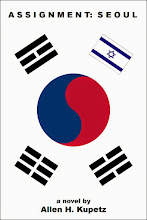SOUTH KOREA, a dynamo of growth, is also afire with faith. This week Pope Francis will spend five days there, for Asian Youth Day and to beatify 124 early martyrs. About 5.4m of South Korea’s 50m people are Roman Catholics. Perhaps 9m more are Protestants, of many stripes. Yoido Full Gospel Church’s 1m members form the largest Pentecostal congregation on Earth. Belief’s farther shores include the Unification Church, soon to mark the anniversary of its founder Sun-myung Moon’s "ascension". The late Yoo Byung-eun, the shifty and versatile tycoon behind the ferry Sewol which sank in April, killing 304 mostly teenage passengers, had also founded his own sect (and the website God.com, now in other hands); its followers hid him during Korea’s largest-ever police man-hunt.
All this is particularly striking, because Asia is mostly stony ground for Christianity. Spanish rule left the Philippines strongly Catholic, but Korea is less simple. In the 18th century curious intellectuals encountered Catholicism in Beijing and smuggled it home. Confucian monarchs, brooking no rival allegiance, executed most early converts: hence all those martyrs, ranking Korea fourth globally for quantity of saints. Protestantism came later and fared better. By the 1880s Korea was opening up, and the mainly American missionaries made two astute moves: opening the first modern schools, which admitted girls; and translating the Bible into the vernacular Hangul Korean alphabet, then viewed as infra dig, rather than the Chinese characters favoured by literati.
The seeds thus sown incubated under Japan’s rule (1910-45), and have sprouted wildly since. The trauma of Japanese conquest eroded faith in Confucian or Buddhist traditions: Koreans could relate to Israel’s sufferings in the Old Testament (no Chosen jokes, please). Yet by 1945 only 2% of Koreans were Christian. The recent explosive growth accompanied that of the economy. Cue Weber’s Protestant ethic: for the conservative majority, worldly success connotes God’s blessing. But Korea also bred its own liberation theology (minjung), lauding the poor and oppressed. Rapid social change often produces spiritual ferment and entrepreneurs like Moon and Yoo: saviours for some, to others charlatans. Prophet and profit can blur: both men did time for fraud. Even Yoido’s founder, David Cho, was convicted in February of embezzling $12m. But these are rare outliers.
Today 23% of South Koreans are Buddhist and 46% profess no belief. Does this represent scope for Christianity's growth, or incipient secularisation? In 2012 only 52% claimed to be religious, down from 56% in 2005. But the world is now their oyster: only America sends more missionaries. Korean Christians have been seized in Afghanistan, beheaded in Iraq and stopped by their embassy from hymn-singing in Yemen. Many work undercover in China. Some, riskily, help North Koreans to flee: as many as 1,000 have reportedly had their Chinese visas cancelled. Others have a grander ambition, to spread Christianity in the North. In Japanese days Pyongyang was a Protestant hotbed, and now some are back, running the private Pyongyang University of Science and Technology, which since 2010 has been educating North Korea’s future elite; strictly no preaching. Given Korean Christians’ energy and tenacity, it is a sure prophecy that one day the Pyongyang skyline will be as studded with neon crosses as Seoul’s. ◦
